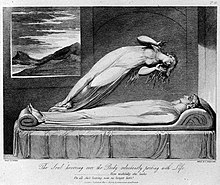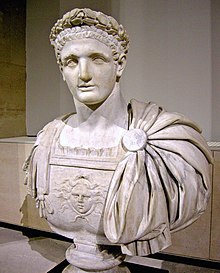Portal:Religion
The Religion Portal
Religion is a range of social-cultural systems, including designated behaviors and practices, morals, beliefs, worldviews, texts, sanctified places, prophecies, ethics, or organizations, that generally relate humanity to supernatural, transcendental, and spiritual elements—although there is no scholarly consensus over what precisely constitutes a religion. Different religions may or may not contain various elements ranging from the divine, sacredness, faith, and a supernatural being or beings. (Full article...)
 Vital article
Vital article

In many religious and philosophical traditions, the soul is the non-material essence of a person, which includes one's identity, personality, and memories, an immaterial aspect or essence of a living being that is believed to be able to survive physical death. The concept of the soul is generally applied to humans, although it can also be applied to other living or even non-living entities, as in animism. (Full article...)
 Did you know (auto-generated)
Did you know (auto-generated)
- ... that the capital of South Ossetia once had more Jews than Ossetians?
- ... that the Grave with the Hands commemorates a married couple, divided by society and religion, with hands clasped over a cemetery wall after death?
- ... that across his thirty-six collections, fashion designer Alexander McQueen contemplated religion, told fairy tales, and criticized the fashion industry?
- ... that Freedom of Religion South Africa filed an unsuccessful lawsuit to keep child spanking legal?
- ... that Catherine de Parthenay, a 16th-century Huguenot leader, was a member of "a highly successful network of information" during the French Wars of Religion?
- ... that fictional religions, often described in speculative fiction, have in some cases inspired real religious movements?
Domitian (/dəˈmɪʃən, -iən/, də-MISH-ən, -ee-ən; Latin: Domitianus; 24 October 51 – 18 September 96) was Roman emperor from 81 to 96. The son of Vespasian and the younger brother of Titus, his two predecessors on the throne, he was the last member of the Flavian dynasty. Described as "a ruthless but efficient autocrat", his authoritarian style of ruling put him at sharp odds with the Senate, whose powers he drastically curtailed. (Full article...)



































































